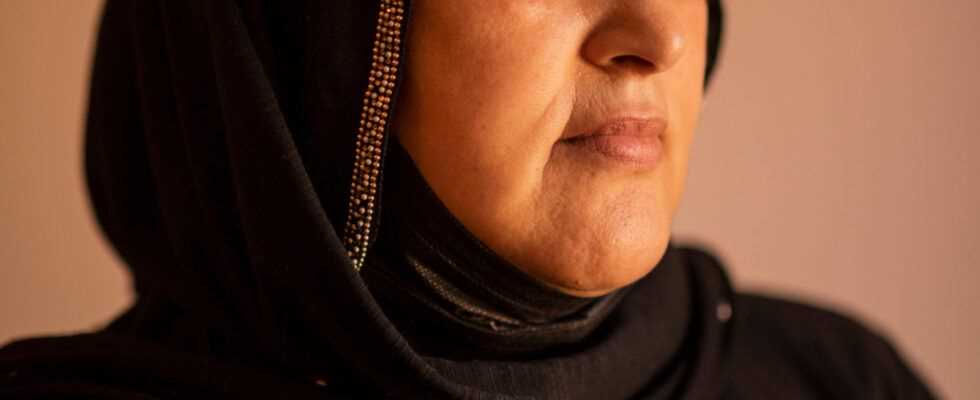PortraitIn this Spanish territory in northern Morocco, the business manager comes to the aid of thousands of migrants, including many minors, who entered en masse on May 17 and 18. But she sees no other way out than their return to Morocco.
“Go get the tracksuits, they can use it for the night. “” Give that poor boy some shoes. »« The shower is free, this one can go up. “” You can put more tortilla in the bread: they are hungry. “ Dark circles around the eyes, Sabah Hamed, djellaba and black veil edged with a golden ribbon framing the oval of her face, exhausted but determined, distributes the tasks to the ten neighbors of Ceuta who came to help her, this Wednesday, June 2 at noon, alternating Spanish and Darija, Moroccan dialect Arabic.
“When we saw them, barefoot, with wet clothes, and among them many children, how could we not feel sorry and help them? We made 28 kilos of pasta that day. It’s all gone… ”Sabah Hamed
It was then exactly sixteen days that this 59-year-old businesswoman offered her parents’ former home as a canteen, public shower and thrift store to the hundreds of Moroccans who entered the Spanish enclave on May 17 and 18, after Morocco deliberately facilitated the passage of nearly 10,000 of its nationals in a context of tension with Spain, which welcomed Brahim Ghali, the leader of the Polisario Front, a Sahrawi independence movement, to a hospital. “We are overwhelmed by events: between three hundred to four hundred people come to shower here every day and we even gave a thousand meals last Friday”, she breathes.
If Spain has returned nearly 8,000 people in recent weeks, there are still, in addition to a thousand minors hosted in emergency centers, hundreds of Moroccan migrants wandering in the city, surviving thanks to the solidarity of the inhabitants. “When they arrived, we were scared, not by the people themselves but by the situation: we wondered what it meant for Morocco to open the borders, if these people came to take the city… Sabah explains with a smile. And then, when we saw them, barefoot, wet clothes, and among them a lot of children, how could we not feel sorry and help them? We made 28 kilos of pasta that day. It’s all gone… ”
Humanitarian aid, a family tradition
To arrive in front of the old family house, in the popular Los Rosales district of Ceuta, you have to leave the historic city center with bourgeois buildings, neoclassical facades and well-ordered streets and head, behind medieval walls, towards the chaotic districts of Colorful houses punctuated with minarets located on the hills. Here, dozens of Moroccans form an endless line, under a blazing sun.
You have 56.28% of this article to read. The rest is for subscribers only.
